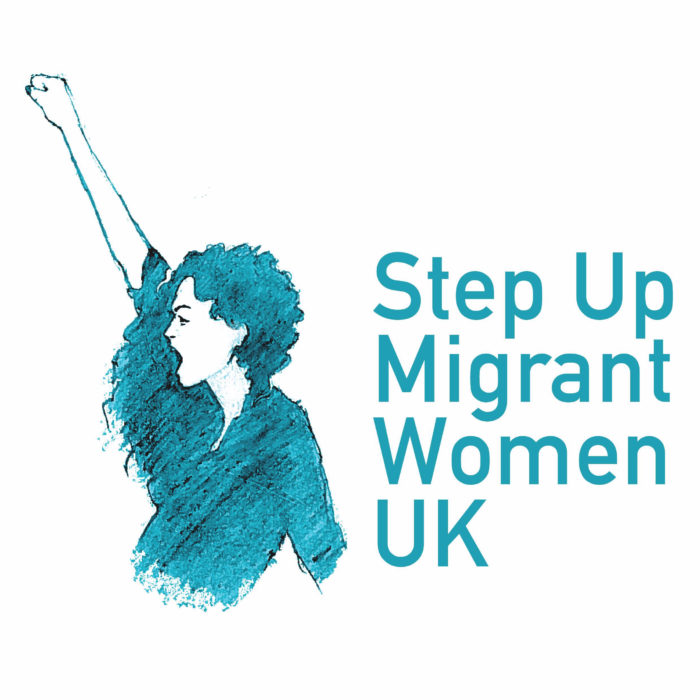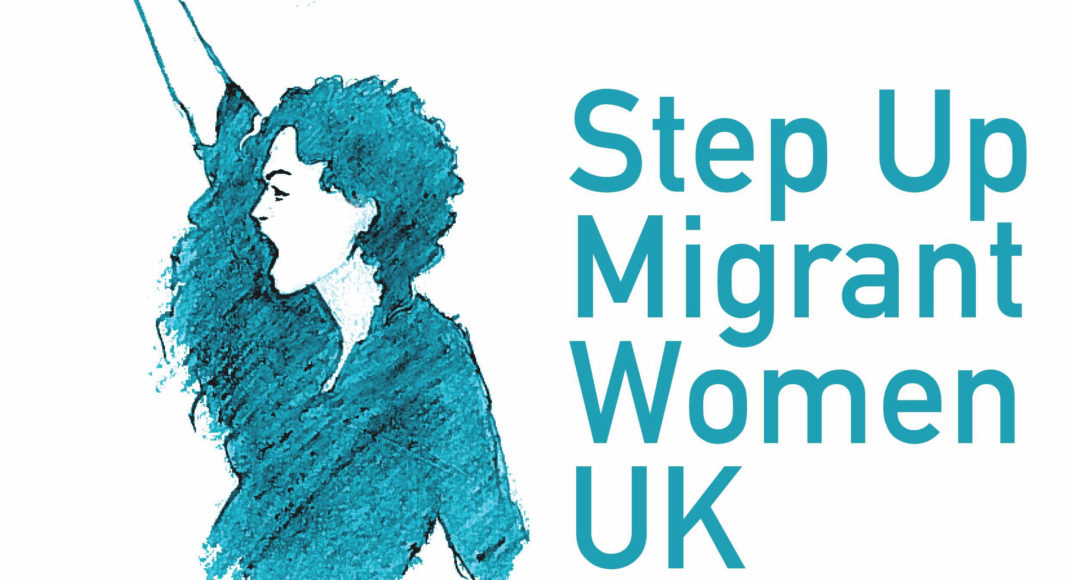As part of our ongoing collaborative Women Resisting Violence project in partnership between LAB and King’s College London, we are spotlighting Latin American grassroots campaigns and organisations that counter violence against women and girls. Read on to learn about the #StepUpMigrantWomen campaign, led by the Latin American Women’s Rights Service. This campaign will feature in the upcoming Women Resisting Violence podcast.
Organisations | Step Up Migrant Women campaign
Step Up Migrant Women (SUMW) is a campaign created ‘by and for’ migrant, Black and Minority Ethnic (BME) women. It was first established and is led by the Latin American Women’s Rights Service (LAWRS) and comprises a coalition of more than 50 organisations (currently 57) that support and advocate for migrant women who experience gender-based violence, with a focus on those with insecure immigration status*.
#StepUpMigrantWomen aims to:
- Secure safe reporting mechanisms
- Bring together diverse voices from Black and minoritised women and migrant organisations to challenge the barriers faced by migrant women with insecure status as victims/survivors of violence or exploitation through research, consultation and advocacy and campaign activities.
Most recently, Step Up Migrant Women lobbied and campaigned around the UK’s Domestic Abuse Act 2021 to ensure that migrant women with insecure status were included in support mechanisms. This was partially successful with two amendments around data sharing being passed in terms of victim’s personal data for immigration purposes (entailing a review and a code of practice).
As their innovative and important work continues, their membership is expanding and their activities to date have already improved the lives of migrant women survivors of gender-based violence in the UK.
*The term insecure immigration status refers to people with temporary status because of waiting for a decision about their permission to stay, or because they are dependent on another family member’s status. In some cases, it may also refer to having no right to remain due to entering without immigration documents or overstaying.
The hostile environment and gender-based violence
The ‘hostile environment’ for migrants in the UK means that migrant women with insecure status are afraid to report their experiences of gender-based violence to the police and other statutory services because they risk their data being shared with the Home Office for immigration control reasons. This could lead to women being deported in a context where immigration enforcement is prioritised over migrant women’s human rights.
This situation is compounded by the fact that women with insecure status have No Recourse to Public Funds (NRPF). NRPF is where a person cannot access public funds such as benefits and housing assistance because they are ‘subject to immigration control’, including having leave to remain as a visitor, spouse, student or through family or private life rules.
The lack of safe reporting mechanisms creates significant barriers for migrant women fleeing gender-based violence, with many staying with perpetrators because they have no other option. Perpetrators also use the threat of reporting and deportation as a tool of control and abuse against women with insecure status.
In recent research with over 70 migrant women in London conducted by Step Up Migrant Women, LAWRS and King’s College London; 62% stated that their perpetrator had threatened their deportation if she reported the abuses, with another 62% feeling they would not be supported due to their immigration status. In addition, the most commonly cited factor preventing women from reporting VAWG was fear of deportation (by a quarter of women). There was widespread distrust of the police, with almost three quarters of migrant women stating that those with insecure status were less likely to report to the police than those with documentation.
These experiences are reflected in the comments from Isabela from Brazil:
‘I came to the UK in 2015 from Brazil. I was convinced by my British ex-husband that I had a spousal visa, but he had refused to apply for one as soon as I arrived in the UK. I continued to undergo domestic violence from my then husband who threatened me repeatedly with deportation. He hid my passport and documents from me. He reported me to social services and told them I was the one being abusive towards our children. I was undocumented and feared being reported to the police. He and his mother hid my passport away from me and he told me I would never be believed and that he would take our children away from me. I was refused support from the police and was made homeless and destitute. I was also told I had no custody over my child because I was undocumented.’
Unsurprisingly, migrant women turned to women’s organisations for support in the face of inaction, further abuse and discrimination at the hands of police and social services. Indeed, almost half of women (47%) went to specialist women’s organisations after reporting to the police, with 77% of women in general reporting to these organisations regardless of going to the police beforehand.

The research reported here was funded by the Lloyds Bank Foundation via the Latin American Women’s Rights Service with King’s College London.




